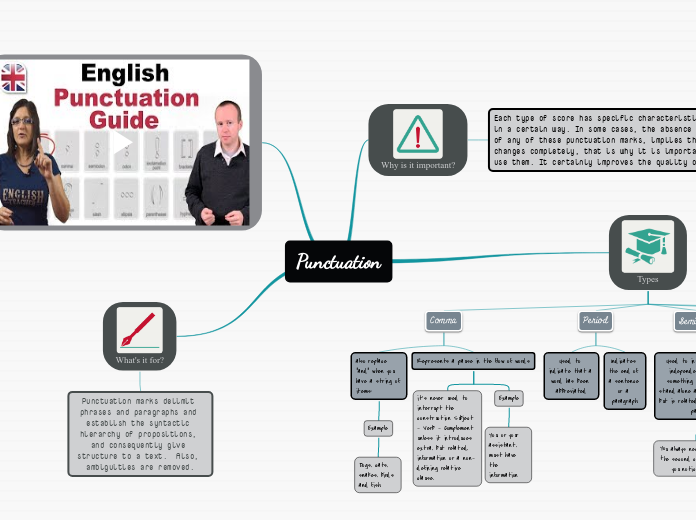Punctuation
What's it for?
Punctuation marks delimit phrases and paragraphs and establish the syntactic hierarchy of propositions, and consequently give structure to a text. Also, ambiguities are removed.
Types
Apostrophe
Only used for contractions and possessives, never for plurals.
“the ’90s”
Colon
Used to give a summary
In the end they found no difference: all cats like to be stroked.
Used to introduce a list of items,
The research team studied a number of different breeds: shorthaired, longhaired and exotic.
Semicolon
Used to introduce an independent clause; something that could stand alone as a sentence, but is related to the first part.
You always need a verb in the second clause; I hope you noticed that.
Period
Indicates the end of a sentence or a paragraph.
Used to indicate that a word has been abbreviated
Comma
Represents a pause in the flow of words
You, or your assistant, must have the information
it’s never used to interrupt the construction Subject – Verb – Complement unless it introduces extra, but related, information or a non-defining relative clause.
also replace “and” when you have a string of items:
Example
Dogs, cats, snakes, birds and fish.
Why is it important?
Each type of score has specific characteristics that are used in a certain way. In some cases, the absence or change of place of any of these punctuation marks, implies that the phrase changes completely, that is why it is important to know how to use them. It certainly improves the quality of your work.

